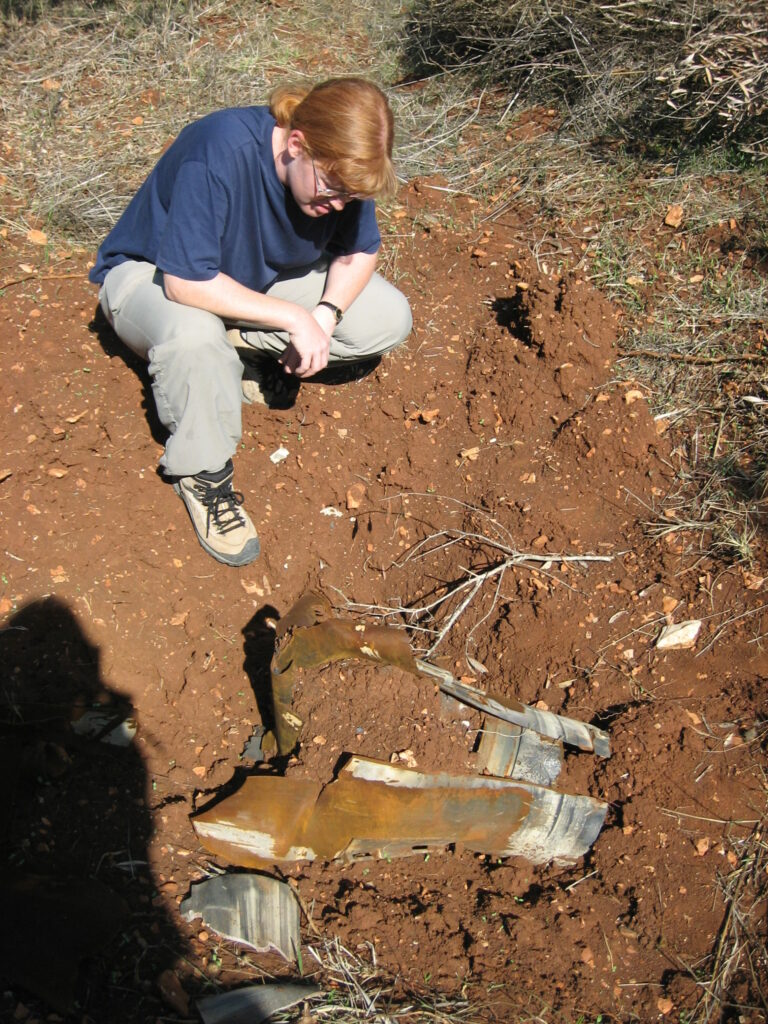
The Armed Conflict & Civilian Protection Initiative
The Armed Conflict and Civilian Protection Initiative (ACCPI) aims to reduce the harm caused by armed conflict through targeted advocacy, leadership development, and the generation of innovative solutions. Grounded in principles of dignity and humanity, the ACCPI adopts an interdisciplinary approach that draws on multiple legal bodies to achieve its ends.
The ACCPI was established to advance civilian protection at a critical moment in its history. Due to the intentional targeting of civilians, combatants’ blending with the local population, the prevalence of urban warfare, and the evolution of weapons technology, civilians now bear the brunt of the armed conflict. At the same time, concern for civilian protection continues to grow, as evidenced by evolving legal and social norms.
Housed in Harvard Law School’s International Human Rights Clinic (IHRC), the ACCPI was founded and is directed by Bonnie Docherty. Other clinicians contribute through their clinical projects and the organization of related events.
The ACCPI promotes civilian protection through three pillars of activity: effecting change through advocacy, cultivating future leaders, and promoting innovation.
Effecting Change Through Advocacy
The ACCPI increases the protection of civilians in armed conflict through cutting-edge advocacy tied to its clinical work.
It strives to prevent and remediate the physical, psychological, socioeconomic, and environmental harm caused by inhumane weapons and problematic tactics of war. It addresses the needs of civilians intentionally targeted or caught in the crossfire as well as those forced to flee a conflict zone.
While the ACCPI takes a broad view of civilian protection, a major area of focus is humanitarian disarmament, which strives to prevent and remediate arms-inflicted human suffering and environmental harm.
The ACCPI works to ensure the effectiveness of existing treaties banning nuclear weapons and cluster munitions, a political declaration on the use of explosive weapons in populated areas, all of which IHRC helped negotiate. The ACCPI helps ensure robust implementation of international law on arms transfers and advocates for a new treaty on autonomous weapons systems (aka “killer robots”) and stronger international law on incendiary weapons. It strives to build civilian protection norms in other areas, including refugee law and victim assistance.
In its advocacy, the ACCPI has partnered with a number of nongovernmental organizations, such as Article 36, the Conflict and Environment Observatory, Control Arms, Human Rights Watch, and PAX. It has also provided legal assistance several humanitarian disarmament coalitions, including the International Campaign to Abolish Nuclear Weapons, which received 2017 Nobel Peace Prize.
Cultivating Future Leaders
The ACCPI grooms the next generation of civilian protection advocates by engaging students in different aspects of its work and offering dedicated programming. Through classes and clinical projects, it shows students the human costs of armed conflict and how civil society can successfully reduce them. It offers periodic trainings on topics relevant to future practitioners, such as how to conduct interviews in conflict situations and how to use open-source data to document weapons use. It runs a mentorship program that matches students interested in careers in civilian protection with alumni working in the field. This program not only allows students to learn from experts but also provides them a community on campus.
Promoting Innovation
To generate fresh perspectives on and creative strategies for lessening the harms of war, the ACCPI fosters dialogue among experts from different organizations, sectors, and parts of the world. It was launched with an international conference on humanitarian disarmament that consisted of private strategy workshops and public presentations. Since then, the ACCPI has sponsored lectures, panels, film screenings, and brown-bag lunches that addressed focused topics related to civilian protection and armed conflict.
Beyond campus, the ACCPI plays a leadership role in the humanitarian disarmament movement. It organizes annual or semi-annual meetings of humanitarian disarmament coalitions and key experts, providing a forum for them to exchange information and coordinate advocacy. During the pandemic, it spearheaded a working group on how COVID affected disarmament that produced numerous publications, events, and a video. With the help of HLS students, it also hosts the humanitariandisarmament.org website, including its Disarmament Dialogue blog, This pillar of the ACCPI thus provides opportunities for students to interact with practitioners, while giving practitioners fora in which to develop new ways to enhance their advocacy.


